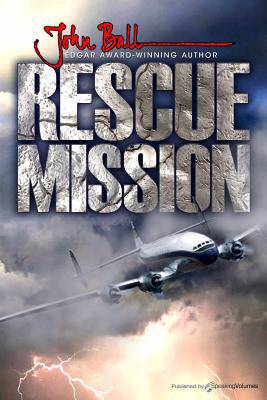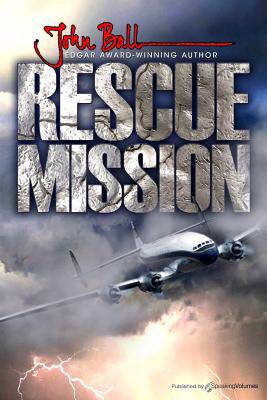
- Retrait gratuit dans votre magasin Club
- 7.000.000 titres dans notre catalogue
- Payer en toute sécurité
- Toujours un magasin près de chez vous
- Retrait gratuit dans votre magasin Club
- 7.000.0000 titres dans notre catalogue
- Payer en toute sécurité
- Toujours un magasin près de chez vous
Description
"The guy certainly knows his airplanes well and he held my interest very tightly as he developed the story."-RICHARD BACH, author of Stranger to the Ground and Biplane
The hurricane warnings were up in the Caribbean when Herb Stallings brought his crippled Constellation in for a landing on Tres Santos. The Connie wasn't safe to fly farther, and the nearest parts for repairing it were in Miami. Stallings decided he'd tie the big plane down on the sheltered side of the hangar, fill the tanks for ballast, and hope the plane would ride out the storm safely.
With the plane well anchored, its captain, crew, and the airfield staff flew out ahead of the storm in a DC-3, to the mainland and to safety.
Meanwhile two Civilian Air Patrol pilots, who had been on a rescue mission over the water searching for some men adrift in a rubber raft, realized that the wind was increasing and that they had better head for land. The nearest land was Tres Santos.
When the CAP pilots arrived at Tres Santos, they found the airfield deserted: only the giant Constellation was there... which was bewildering.
Then they were approached by two of the islanders and a priest-who begged them to fly a very sick man and a badly burned little girl out of the storm's path to the mainland and a doctor.
The CAP pilots knew that men whose only flight experience and training had been in one-engine planes could not possibly handle anything the size of a Constellation. They protested-said they couldn't do it.
But it seemed to be a matter of life and death. Foolhardy and dangerous though they knew the attempt to be, they finally agreed to try to fly the big plane out. They didn't know its condition-and one of them certainly didn't have any idea what his passenger list was like.
Desperately they began the terrifying task of getting the Connie up into the air to outrace the hurricane.
John Ball (who has flown many air rescue missions himself) knows what he's writing about-and his exciting novel lets the reader share a pilot's experiences with unusual immediacy.
The hurricane warnings were up in the Caribbean when Herb Stallings brought his crippled Constellation in for a landing on Tres Santos. The Connie wasn't safe to fly farther, and the nearest parts for repairing it were in Miami. Stallings decided he'd tie the big plane down on the sheltered side of the hangar, fill the tanks for ballast, and hope the plane would ride out the storm safely.
With the plane well anchored, its captain, crew, and the airfield staff flew out ahead of the storm in a DC-3, to the mainland and to safety.
Meanwhile two Civilian Air Patrol pilots, who had been on a rescue mission over the water searching for some men adrift in a rubber raft, realized that the wind was increasing and that they had better head for land. The nearest land was Tres Santos.
When the CAP pilots arrived at Tres Santos, they found the airfield deserted: only the giant Constellation was there... which was bewildering.
Then they were approached by two of the islanders and a priest-who begged them to fly a very sick man and a badly burned little girl out of the storm's path to the mainland and a doctor.
The CAP pilots knew that men whose only flight experience and training had been in one-engine planes could not possibly handle anything the size of a Constellation. They protested-said they couldn't do it.
But it seemed to be a matter of life and death. Foolhardy and dangerous though they knew the attempt to be, they finally agreed to try to fly the big plane out. They didn't know its condition-and one of them certainly didn't have any idea what his passenger list was like.
Desperately they began the terrifying task of getting the Connie up into the air to outrace the hurricane.
John Ball (who has flown many air rescue missions himself) knows what he's writing about-and his exciting novel lets the reader share a pilot's experiences with unusual immediacy.
Spécifications
Parties prenantes
- Auteur(s) :
- Editeur:
Contenu
- Nombre de pages :
- 220
- Langue:
- Anglais
Caractéristiques
- EAN:
- 9781628150100
- Date de parution :
- 17-09-14
- Format:
- Livre broché
- Format numérique:
- Trade paperback (VS)
- Dimensions :
- 152 mm x 229 mm
- Poids :
- 326 g

Les avis
Nous publions uniquement les avis qui respectent les conditions requises. Consultez nos conditions pour les avis.






